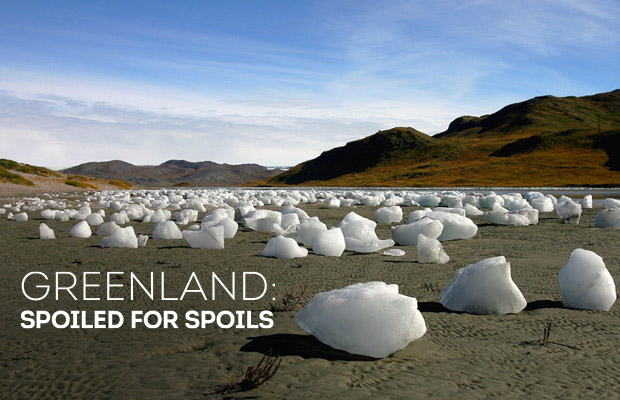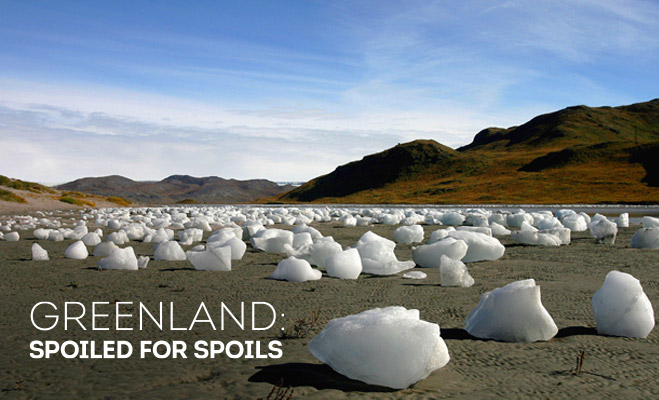Greenland: spoiled for spoils
Environmental change and global warming are reshaping both the landmass and economic capacity of Greenland


Greenland is a nation characterised by both traditional values and the desire to change for financial gains. Bearing on the public consciousness as much so as environmental concern, is the extent to which the nation will bend to the will of larger nations and corporations in ensuring a richer future.
Despite having a predominantly inuit population of only 57,000 and an economy whose primary industry is in fishery, Greenland is host to a number of valuable mining opportunities – most notable of which being a vast deposit of rare earth elements. Having this year unearthed a 1 billion ton iron ore deposit in south-western Greenland, British-based London Mining is set to exploit the ore with the financial and manufactural backing of a number of Chinese enterprises. The proposed plant – costing in excess of $2.3bn – is expected to bring diesel power plants, a road and a port to Greenland’s ever-expanding capital of Nuuk. The economic benefits of such projects are clear for all to see, though Greenlanders are required to compromise their legal system in aiding the progress of foreign investment.
‘Zero tolerance’
Laws restricting mining practises – particularly those ascertaining to the exploitation of rare earth elements – have long persevered in Greenland. “The policy of zero tolerance is the main issue for us,” said Ib Laursen, operations manager at Greenland Minerals and Energy (BMP), though the IA party claim that only by doing away with these laws could future mining projects be made feasible. As such, the BMP has demonstrated a blatant disregard for national mining policy, having awarded some 150 licenses for mineral exploration. Such negligence has so far resulted in $100m having been spent by foreign companies through 2012 and a further $1bn being spent in offshore exploration. Many of Greenland’s population consider fundamental laws to have caved far too easily under the weight of more powerful nations, echoing larger public concerns that it may be losing its national integrity in the shadow of large, multinational corporations.
Greenland’s Prime Minister Kuupik Kleist, speaking in relation to these practises, said that while Greenland “is not a rich society… we need to establish new, significant economic activities” in order for the country to prosper and to benefit from richer economies.
Although mining projects provide for rewards in the way of financial prosperity, Greenland’s wider population are reluctant beneficiaries in that the economic benefits are often gained at the expense of lessened environmental and national integrity.
Changes to the law
Much of the population fear that Greenland is incapable of absorbing so much investment and foreign work, and that untrained and poorly educated Greenlanders will be made redundant with the coming of cheaper foreign workers. Concerns of this nature were heightened in December, when a new law was passed allowing companies to pay foreign workers lower wages than Danish law currently demands of Greenlanders. The acting IA party claim that “this law gives Greenland a stronger hand when negotiating with companies seeking to begin operations here,” though heavy public and political opposition claim for the government to have weakened all too easily.
The new legislature has been subject to harsh scrutiny, mainly in that Greenlanders claim the issue was rushed through parliament without debate. Many recognise that it will “have an enormous impact on Greenland’s future. We can’t afford to rush a decision through parliament without involving the entire population through a democratic process,” as put by Anders Meilvang, head of Transparency Greenland. While few oppose the fundamental need for change, it is instead the rate at which it’s being exercised that concerns the vast majority of Greenlanders.
Regardless of recent law reforms, Greenlanders, as a whole, recognise the importance of having foreign investment strengthen their economy. Greenland lawmaker Naaja Nathanielsen states that “there is a need to become independent economically” and that “most people see it not as opportunity, but as necessity”.













